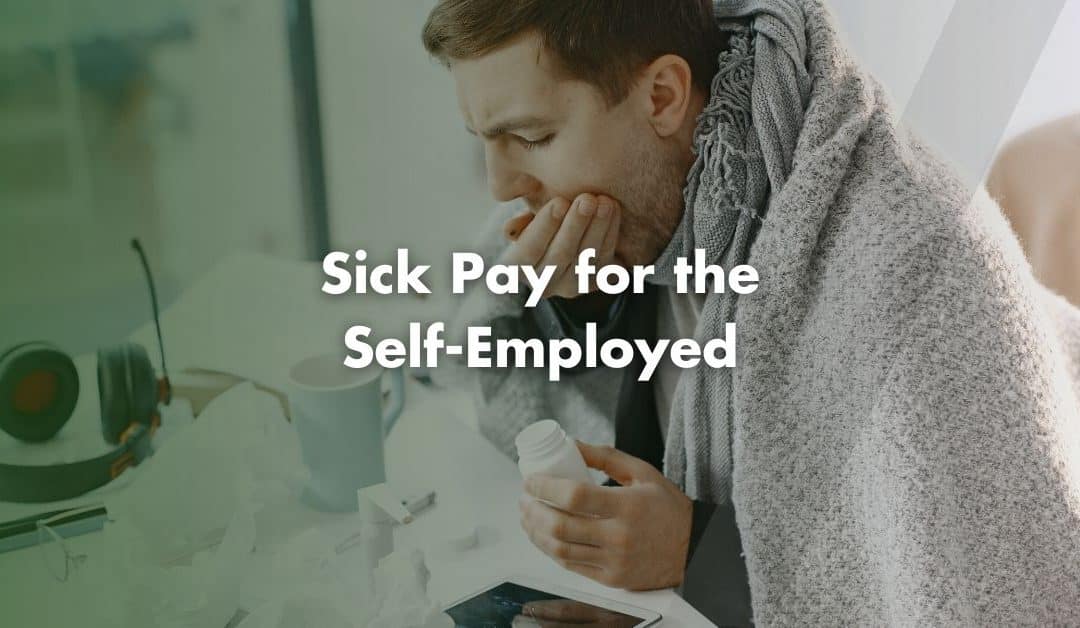With no employer to support you and no access to Statutory Sick Pay (SSP), many self-employed workers face real uncertainty. Fortunately, there are alternative benefits and insurance options that can offer support during periods of illness.
Why the Self-Employed Don’t Receive Sick Pay
Employers pay Statutory Sick Pay to employees who are too unwell to work. As of April 2025, the SSP rate is £118.75 per week. If you are self-employed, this benefit does not apply because you do not have an employer. This includes sole traders and partners in a business partnership.
However, if you operate through a limited company and pay yourself a salary as a director, you may be eligible for SSP. To qualify, you must earn at least £125 per week and, as of April 2025, SSP is payable from day one of sickness. In that case, you can claim SSP through your own company like any other employee.
For most self-employed individuals though, SSP is not available.
Benefits for the Self-Employed
While you may not qualify for SSP, there are other forms of financial support available if you are unable to work due to illness. These include Employment and Support Allowance (ESA) Personal Independence Payment (PIP) and Universal Credit.
1. Employment and Support Allowance (ESA)
ESA is a benefit for people who are too ill or disabled to work. If you are self-employed, you may be eligible for “new style” ESA if you:
- Are under State Pension age
- Have a medical condition that affects your ability to work
- Possess a valid “fit note” from your GP
- Have paid sufficient National Insurance Contributions over the past two or three years
You can backdate ESA for up to three months. Payments begin from day one of your claim. Initial ESA rates include:
- £92.05 per week (aged 25 or over)
- £72.90 per week (under 25)
ESA allows limited work up to 16 hours per week while earning up to £152 per week under permitted work rules. After applying, you will usually complete a Work Capability Assessment. Depending on the outcome, you may fall into one of two groups:
- A Work-Related Activity Group for those expected to return to work (£92.05 per week)
- A Support Group for those not expected to work due to their condition (£140.55)
2. Personal Independence Payment (PIP)
PIP is for people with long-term physical or mental heath conditions that impact daily life or mobility. You may qualify if you:
- Struggle with daily activities such as cooking, dressing or washing
- Have difficulty with mobility, such as moving around or leaving the house
PIP does not consider your income or savings, so they do not affect your eligibility. You can still receive it while working. The application includes an assessment process and decisions are based on how your condition affects you, not your diagnosis.
3. Universal Credit
Universal Credit is a monthly benefit for those on low income, including self-employed workers. You may qualify if:
- Self-employment is your main source of income
- You work regularly and expect to make a profit
- You can provide documentation such as invoices and accounts
To assess eligibility, the government uses the Minimum Income Floor (MIF). This is an assumed amount based on your age and the number of hours worked at the National Minimum Wage.
If you earn less than the MIF, the system may reduce your benefit amount. However, the MIF does not apply for the first 12 months of your self-employment or if you provide a fit note confirming illness.
A Work Coach will also support you during your claim and help you manage your business through illness.
Contact Us
We are not just accountants; we are Chartered Accountants with one of the most reputable and premium accounting bodies. We are registered and regulated by ACCA; so you can rest assured that you are in good hands. Knowing this, don’t hesitate to get in touch with us if you require assistance: Pi Accountancy | Contact Us
This article is for general informational purposes only and does not constitute legal or financial advice. While we aim to keep our content up to date and accurate, UK tax laws and regulations are subject to change. Please speak to an accountant or tax professional for advice tailored to your individual circumstances. Pi Accountancy accepts no responsibility for any issues arising from reliance on the information provided.

